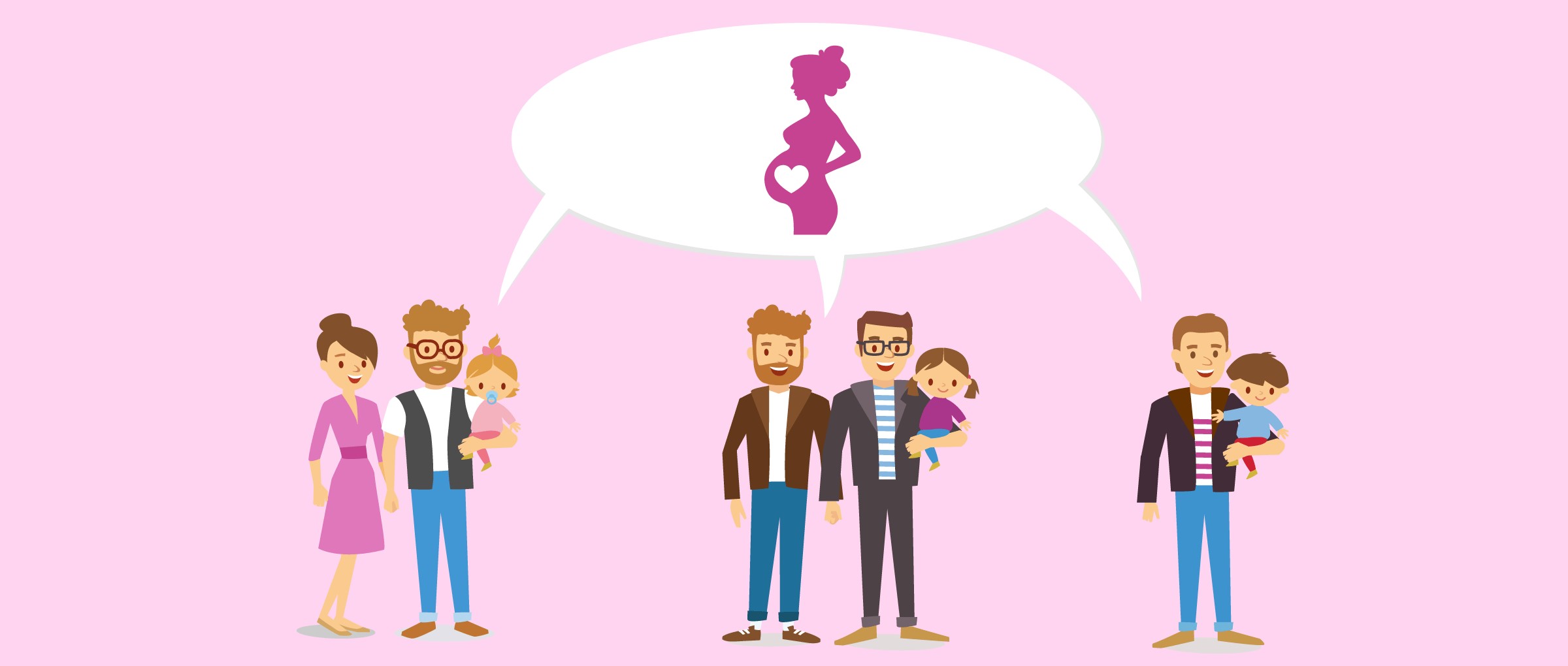In surrogate motherhood, a woman with no fertility issues and in an altruistic form receives the embryos of a couple who for multiple reasons cannot carry a baby to term. This child is given to their parents at birth.
The couples that would benefit from surrogate motherhood are diverse: from heterosexual couples when a woman does not have a uterus or to whom a pregnancy is incompatible with her health and well-being to homosexual male couples.
Surrogate motherhood in Spain is illegal and prohibited. These couples which we mentioned above by the Spanish legislation do not have a right to become parents. In a country boasting about being among the most advanced in the world concerning equality and social rights, we encounter this social injustice.
Homosexual couples formed by two women do have a right to become mothers because of the assisted reproduction technique called ROPA where one of the partners is an oocyte donor and the other receives the embryos resulting in her partner’s oocytes fertilised with the donor’s sperm. However, homosexual couples formed by two men cannot become fathers because the law expressly prohibits this right.
The law permits us to donate a kidney to someone in need but prohibits women from providing their uterus to other couples.
The Spanish government should reconsider the law on surrogate motherhood and regulate it better in terms of children coming from surrogate mothers from other countries and their parents willing to register their children in Spain.
Daniel García
Embryologist
IMAGE: https://babygest.com/es/experiencias-en-gestacion-subrogada/

